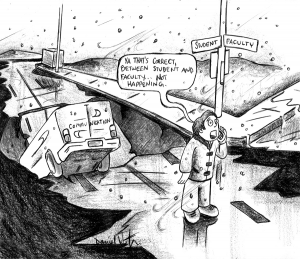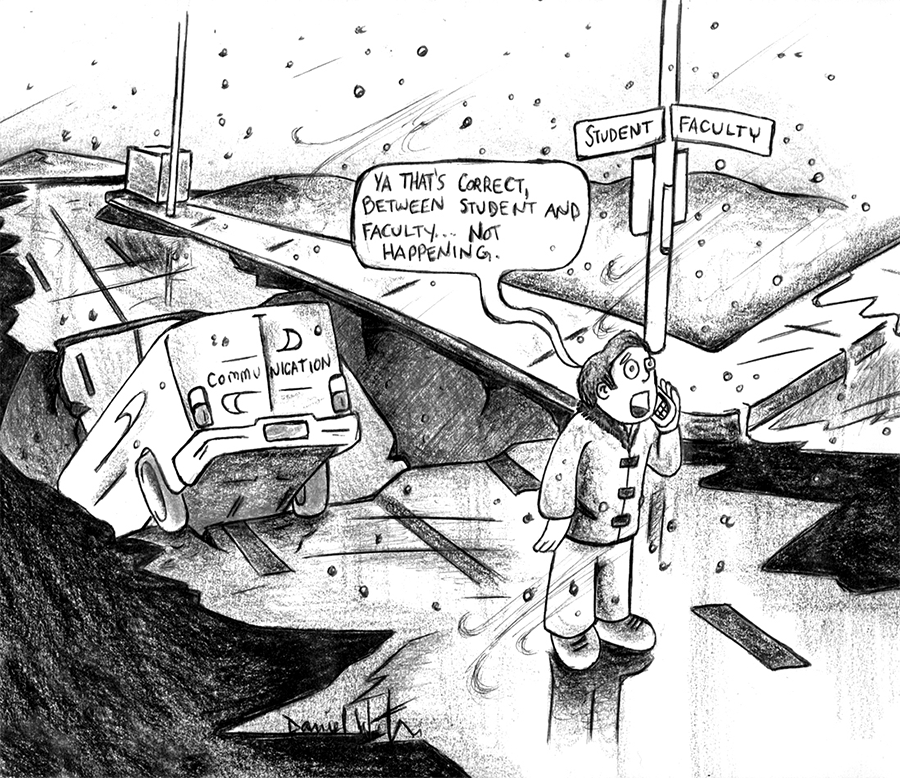 During the recent inclement weather, frustrations occurred when some TCC students and faculty neglected their responsibility to communicate with each other.
During the recent inclement weather, frustrations occurred when some TCC students and faculty neglected their responsibility to communicate with each other.
To some, closed campuses meant a winter break. But that doesn’t mean homework is left unfinished and exams aren’t prepared for.
Most professors hand out a syllabus the first day of class that sets forth the course objectives, usually including a course calendar. But a syllabus is a guideline, not an exact road map. Situations, like inclement weather, conflict with projected dates. Professors should inform students of what they need to do during the time off to be caught up so they’re not cramming when class resumes.
If the curriculum of a class is not textbook-based or uses the textbook but is primarily based on in-class lectures, it should be more of a prerogative for professors to send out their PowerPoints or notes.
Students should meet their professors halfway. If faculty members e-mail their students, students are responsible for responding.
For those who have Internet access at home, weather may have caused interruptions to that access. Many households were left without electricity for hours. In this situation, teachers should make allowances.
A valid point is that TCC serves many low-income students. Those students may not have Internet access, or computers at all, and rely on resources provided on campus. Therefore, such students were disadvantaged when professors sent information via e-mail during the time campus was closed.
But NE student Caitlin Dillon, 21, said if she misses a class, she e-mails her professor through CampusCruiser and feels her professors should do the same.
“To me, not getting a response to an e-mail is kind of disrespectful without the added pressure of a snow day. But when you combine the two, it makes college life just that more difficult,” Dillon said. “The fact that some of the faculty were unable or unwilling to do the same is frustrating. It’s like we don’t get the same respect that they expect us to give them.”
Briana Ochoa, 22, also a NE student, said most of her teachers were good about keeping her updated on schedule changes and homework, but it would have been convenient if all of her professors did the same.
“Since the school closing delayed lectures in class, it would have been helpful to know whether certain assignments were still due by the dates originally assigned even though the material may not have been covered in class yet,” Ochoa said.
Kim Maynard, 53, who attends NE and the University of North Texas, said she quit e-mailing her teachers at NE because, snow or no snow, she gets no response.
“During the snow break, I had no trouble staying up with my UNT study because there was constant contact between students and teachers,” Maynard said, “but when I e-mailed students at TCC to get together for study sessions and e-mailed teachers some questions, I never got a response! I find that unacceptable for any institution.”
TCC’s slogan is “Tomorrow Starts Here.” Tomorrow starts with communication between faculty and students.

